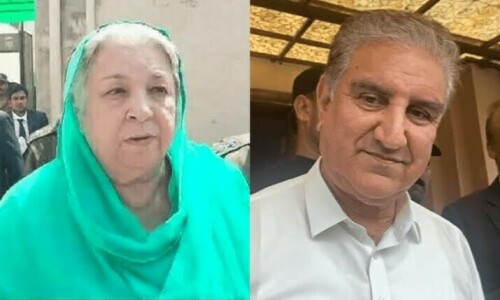AUGUSTO Pinochet, the Chilean military dictator, overthrew the socialist government of Salvador Allende on Sept 11, 1973. He established a military rule, a new repressive constitution and laws, and ruled the country from 1974 to 1990.
During his reign, he repressed dissent and used every means to silence it. In 1988, he was rejected by the Chilean people through a plebiscite. Afterwards, he transferred power to the newly installed president in 1990. However, the repressive constitution and laws remained in place.
A new era in Chile began with the coming of Gabriel Boric into the Chilean presidency. He is the youngest president in Chilean history and the second-youngest state leader in the world. He was the president of the University of Chile Student Federation in 2011-12 and remained a leading figure in students’ protests.
He got support from socialist, democratic, and progressive elements in Chile. Under his leadership, an elected constitutional convention is rewriting the constitution and laws to replace the old ones left by Pinochet.
Besides, the cabinet of his presidency is absolutely spectacular. For instance, Interior Minister Izkia Siches is a former head of the national medical union. Climate scientist Maisa Rojas is the Environment Minister. Justice Minister Marcela Ríos is a veteran of the United Nations Development Programme (UNDP). And, at 32, the youngest cabinet minister is Antonia Orellana, who is in charge of women and gender equality issues. Besides, Finance Minister Mario Marcel, a Cambridge graduate and a former Socialist Party politician, was head of the country’s central bank.
There are reasons to believe that we, as a country and as a nation, have a lot to learn from the example of Chile.
Anwar Sayab Khan
Bannu
ABUSIVE LANGUAGE: The abusive language being used by politicians across the board has been a disappointment, especially when the prime minister himself is involved. The opposition’s move, after all, is within the constitutional framework, and there is hardly any reason for those in power to be abusive about it or to issue threats. Democracy teaches democratic norms and ethical principles to manage challenges tactfully and in line with the democratic spirit.
Guldar Ali Khan Wazir
Lakki Marwat
SAD REALITY: In one of his speeches, the prime minister said that no one will marry the children of parliamentarians who would vote against him when the no-confidence motion is tabled in the National Assembly. I sincerely hope that his words would come true because in today’s society, law-breakers are able to find life partners for their children easily, while the poor, honest and law-abiding people suffer on this count. This is the sad reality of our society.
Shakir Lakhani
Karachi
POLITICAL TURMOIL: The derogatory remark that was repeatedly passed by a government politician recently on live television against a political rival was an utter disgrace. What made the issue more sensitive was the fact that the targeted person belonged to a minority community who showed tolerance and saved the situation from going worse. The war of words needs to come to an end, and the focus should shift to proceedings inside parliament.
Malik ul Quddoos
Karachi
PEDESTRIAN BRIDGE: Thousands of commuters and pedestrians, especially students, women and senior citizens, face great difficulty in crossing the main Sharea Faisal at the Malir Halt intersection in Model Colony. There is no pedestrian bridge at the main bus-stop to facilitate the citizens. As a result, accidents occur frequently. The authorities concerned must build a pedestrian bridge near Malir Halt on an urgent basis for the convenience and safety of a great number of people.
K.M. Shafi
Karachi
Published in Dawn, March 29th, 2022











































Dear visitor, the comments section is undergoing an overhaul and will return soon.